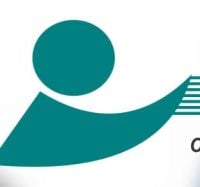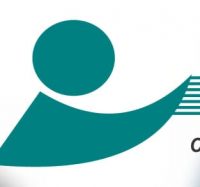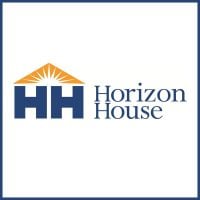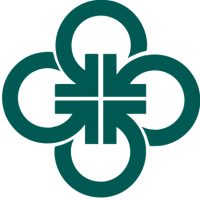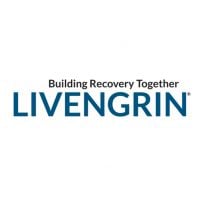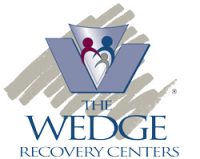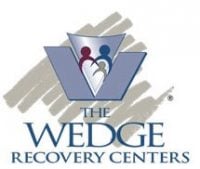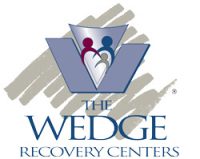Thomas Jefferson University Hospital - Narcotic Addiction Rehab
Drug Rehab Center in Philadelphia, Pennsylvania
Thomas Jefferson University Hospital - Narcotic Addiction Rehab provides comprehensive, accredited, and evidence-based drug addiction treatment tailored to individual needs with the goal of achieving long-term sobriety.
About Thomas Jefferson University Hospital - Narcotic Addiction Rehab in Pennsylvania
Thomas Jefferson University Hospital - Narcotic Addiction Rehab is a full-service addiction treatment center located in Philadelphia, Pennsylvania. It offers detox, outpatient, dual-diagnosis, and intensive outpatient levels of care, and the staff specialize in treating people with alcoholism, substance abuse, and opioid addiction. This facility has a comprehensive approach to treatments, with trained medical staff dedicated to providing the care and support needed for successful recovery. They also offer dual-diagnosis programs for people with a mental illness as well as an addiction.
At Thomas Jefferson University Hospital - Narcotic Addiction Rehab, they understand that recovering from addiction is a challenging process. They offer evidence-based therapies and support groups to help individuals cope with their addiction and develop the skills needed to sustain their recovery. Their experienced and accredited team is here to help individuals create a personalized treatment plan tailored to their needs and goals. The facility has been accredited by SAMHSA, a national organization that sets successful standards for addiction treatment, making it an excellent choice for those seeking a safe, respected, and reliable treatment program.
Genders
Ages
Modality
Additional
Accreditations
SAMHSA
Conditions and Issues Treated
Substance abuse creates problems that affect people in Philadelphia, PA on many levels. First, substance abuse affects the individual who is abusing drugs or alcohol. This can result in health problems, including heart damage and overdose. Substance abuse also affects the user’s family, friends, co-workers, classmates, or peers. These people feel frustrated because they do not know how to help their loved ones struggling with addiction. At the same time, the addict cannot control his behavior. Lastly, friends and family members of addicts are affected financially by substance abuse.
The good news is that effective treatments can help prevent substance abuse or treat its effects on the user. These treatments, which include behavioral therapy and counseling sessions, target the underlying causes of substance abuse, helping users achieve sobriety so they can regain control over their lives. They also teach users to cope with stress in ways other than using drugs or alcohol.
Opioid addiction has become a significant health problem in the United States. When a person’s life becomes unmanageable because of an opioid addiction, treatment can help them get sober. Treatment includes medical care and counseling.
“With so many people struggling with opioid addiction, we need more care and attention for those who want to quit. Opioid addicts often take opioids when they experience a painful injury – that’s how the cycle starts! When someone begins taking their medication differently than prescribed or takes an excessive amount of drugs, it means they’re hooked on drugs and in danger of overdosing.
The most successful way to beat this is through detoxing from these types treatments at Thomas Jefferson University Hospital - Narcotic Addiction Rehab in . Most facilities start by using medical support during the process while providing counseling services; rehabilitation comes later on after treatment has been completed successfully.
A “dual diagnosis” is when the individual has two medical issues at the same time. The top co-occurring mental disorders with addiction are depression, anxiety, ADHD, bi-polar disorder. Addiction is also considered a mental illness that is not a choice but rather a medical condition. Addiction can be caused by any number of underlying issues.
Dual diagnosis is provided by Thomas Jefferson University Hospital - Narcotic Addiction Rehab to treat addictive tendencies as well as any untreated mental illnesses. This ensures successful long term health and recovery for patients after treatment has been completed.
Dual diagnosis is provided by Thomas Jefferson University Hospital - Narcotic Addiction Rehab to treat addictive tendencies as well as any untreated mental illnesses for people in Pennsylvania. This ensures successful long term health and recovery for patients after treatment has been completed.Levels of Care Offered
This center offers a variety of custom treatment tailored to individual recovery. Currently available are Detox, Dual-Diagnosis, Intensive Outpatient, Outpatient, with additional therapies available as listed below.
The first level of recovery is detox. It involves giving a person the opportunity to get the toxins out of their body safely. The individual receiving treatment at Thomas Jefferson University Hospital - Narcotic Addiction Rehab typically will get ill during detox, and they will often start using again to get rid of unpleasant emotions and complicated physical responses. It is why having a Pennsylvania medical professional present is so critical. A medical professional can make sure that patients do not start using again during detox and stay physically healthy during the process. They will also have treatment on a mental level to relieve their symptoms and guide them through the process.
Outpatient addiction treatment is beneficial for people who are able to function well in their day-to-day lives. It is recommended for people who are not yet ready to end their relationships with friends or family members who might be encouraging drug and alcohol use.
Intensive outpatient treatment is beneficial for:
- People who are able to attend treatment more than 3 times per week.
- People who do not meet the criteria for inpatient treatment.
- People who are able to contribute to their own recovery outside of the treatment center.
- People who are motivated towards recovery.
- People who are able to overcome addiction on their own without the need for higher levels of care.
Outpatient programs at Thomas Jefferson University Hospital - Narcotic Addiction Rehab, the Philadelphia resident can live with their family while continuing with their job or studies. Treatment includes educating the patient on drug abuse, medications, and counseling sessions at the individual or group level. Outpatient treatment plans cover diagnosis, detoxification, management, and counseling. They are a popular option for those who have graduated from inpatient facilities.
Therapies & Programs
Group therapy sessions are another common addiction recovery service. These group sessions typically involve six to 12 addicts who meet regularly with a trained professional for support and guidance.
During these sessions, the group shares their experiences with one another and provides feedback that can help each member avoid relapse or overcome specific obstacles they are facing in their recovery process. With this type of support and guidance, addicts can feel like they are part of a community that understands their struggles and will help them get through the hard times.
Many people struggling with drug addiction have experienced some form of trauma in their lives. It is crucial that these individuals seek out professional help; otherwise, their drug abuse and addiction will likely continue.
Therapists and counselors at drug treatment centers employ several treatment programs to help people struggling with drug addiction, including trauma therapy. Trauma therapy helps people dealing with addiction by allowing them to confront the traumas of their past and move past them.
It is important to note that trauma therapy should not be confused with PTSD (post-traumatic stress disorder). Rather, it is used to treat the effects of trauma, which are often at the root of addiction.
Payment Options Accepted
For specific insurance or payment methods please contact us.
Additional Details
Specifics, location, and helpful extra information.
Philadelphia, Pennsylvania 19146 Phone Number(215) 735-5979 Meta DetailsUpdated November 25, 2023
Staff Verified
Thomas Jefferson University Hospital - Narcotic Addiction Rehab Patient Reviews
There are no reviews yet. Be the first one to write one.
Philadelphia, Pennsylvania Addiction Information
Pennsylvania ranks 14th in the nation for drug-related deaths. More than 10% of all deaths in Pennsylvania have been related to drugs and alcohol. 30% of Pennsylvania youth reportedly drink alcohol monthly, with more than 20,000 teenagers having an alcohol problem. The rate of opioid misuse in Pennsylvania is double the national average.
Drug addiction and abuse are a big problem in Philadelphia, Pennsylvania. According to recent statistics, about 73,000 people in Philadelphia struggle with drug addiction. This means that about 7.5% of the population is addicted to drugs. Philadelphia also has one of the highest overdose rates in the country, with about four deaths per 100,000 people. It is important to choose a program that fits the individual's needs and addiction severity.
Treatment in Nearby Cities
- Bristol, PA (20.9 mi.)
- Bridgeville, PA (261.9 mi.)
- Blairsville, PA (217.9 mi.)
- Monroeville, PA (245.4 mi.)
- Ridgway, PA (212.1 mi.)
Centers near Thomas Jefferson University Hospital - Narcotic Addiction Rehab
The facility name, logo and brand are the property and registered trademarks of Thomas Jefferson University Hospital - Narcotic Addiction Rehab, and are being used for identification and informational purposes only. Use of these names, logos and brands shall not imply endorsement. RehabNow.org is not affiliated with or sponsored by Thomas Jefferson University Hospital - Narcotic Addiction Rehab.


